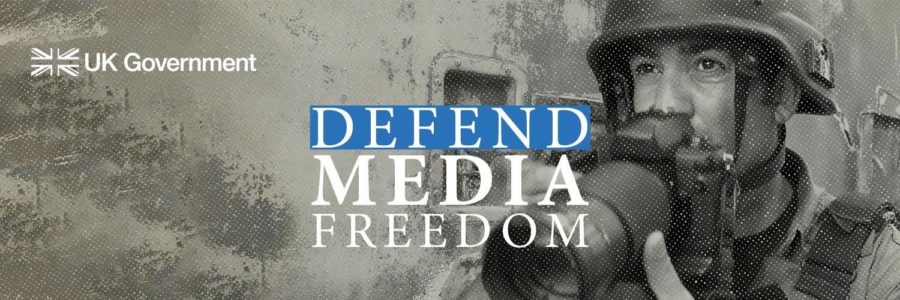A campaigning journalist in Mexico receives a call before dawn about an incident at a night club. He quickly goes there. As he arrives, he is shot dead – one of 99 journalists killed worldwide in 2018.
This vivid example was given by the Foreign Secretary, Jeremy Hunt, at a conference on media freedom in London on 10 July. I recommend his speech, which includes the famous 1887 quotation by Lord Acton “Power tends to corrupt and absolute power corrupts absolutely”.
In fact, of the ten cleanest countries in the world, as ranked by Transparency International, seven are also in the top ten of the World Press Freedom Index. Meanwhile, of the ten most corrupt countries, four are in the bottom ten for media freedom.
"Killing has become a way to silence journalists, to instil a climate of fear"@barbara_trionfi from @globalfreemedia on IPI's Death Watch and why we must #DefendMediaFreedom
📰 https://t.co/CDxOdQYKkh pic.twitter.com/Lg4jK5Er2o
— UK Delegation OSCE (@UKOSCE) July 9, 2019
The conference in London was co-hosted by Canada and was attended by Canadian Foreign Minister Chrystia Freeland (who I know a bit as she was FT correspondent in Moscow when I was posted there in the 1990s) and leading human rights lawyer Amal Clooney, the special envoy on global media freedom.
It is tempting to think that in countries such as Austria or the UK, with their strong human rights record and vibrant media scene, no-one needs to worry about media freedom. I disagree. In any country, market forces may risk undermining the media and its freedoms. So too can a tendency by some politicians not to like what people are writing about them.
Media freedom also makes democracy stronger, and – in the long run – governments more stable, as well as being freer, more legitimate and more accountable. People sometimes say to me “authoritarian leader X is very popular” or “undemocratic country Y is very stable”. I reply that it is easy to be popular if you have systematically ensured that most of the media of your country is under government control and praises you to the skies. History tends to show that in authoritarian countries which do not allow the valve of a free media or a genuine democracy, pressures may build up which eventually become destructive.
It is important that everyone joins in the fight for media freedom – both at home and in other countries where freedoms are under threat. I commend the material at the links.

